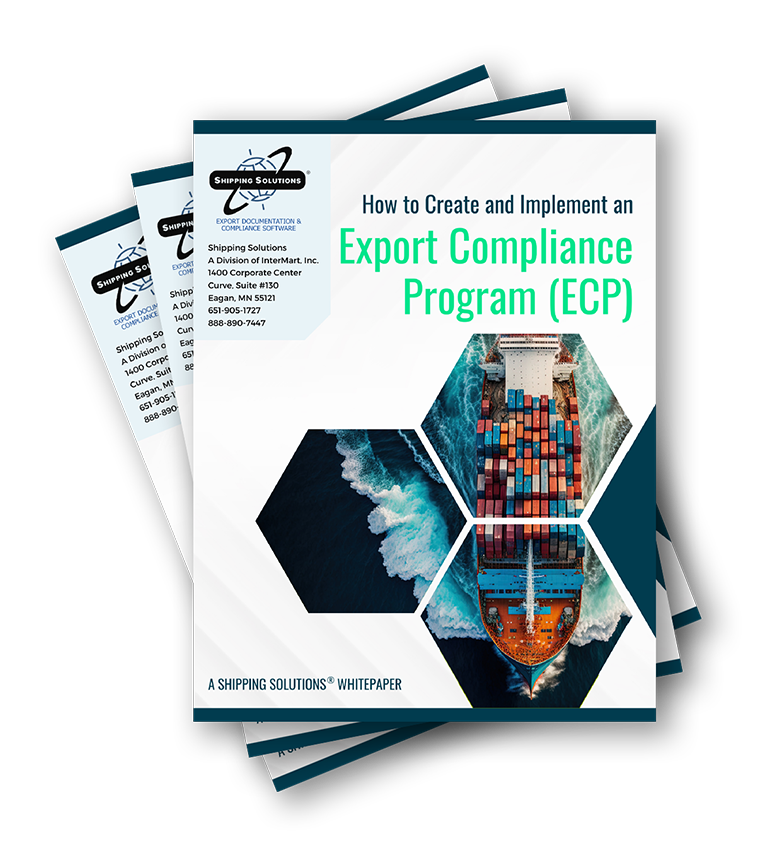The International Trade Blog Export Compliance
The Value of a Trade Compliance Champions Network
On: October 16, 2023 | By:  Matthew Silverman |
5 min. read
Matthew Silverman |
5 min. read
 In the early 1920s, the agricultural world was revolutionized by the invention of hybrid seed corn in Ames, Iowa. Hybrid seed allowed farmers in Iowa to increase their corn crop yields by 20% per acre. Although it was invented in the early 1920s, by the time it became widely used by Iowa farmers, a decade had gone by. It had taken so long for the innovation to become widely adopted by Iowa farmers that in the mid-1930s a sociologist from Harvard University, Dr. Bryce Ryan, came to Iowa to study the why and the what—why it took so long to catch on and what the factors were that eventually caused its widespread adoption.
In the early 1920s, the agricultural world was revolutionized by the invention of hybrid seed corn in Ames, Iowa. Hybrid seed allowed farmers in Iowa to increase their corn crop yields by 20% per acre. Although it was invented in the early 1920s, by the time it became widely used by Iowa farmers, a decade had gone by. It had taken so long for the innovation to become widely adopted by Iowa farmers that in the mid-1930s a sociologist from Harvard University, Dr. Bryce Ryan, came to Iowa to study the why and the what—why it took so long to catch on and what the factors were that eventually caused its widespread adoption.
Dr. Ryan gathered data from personal interviews with farmers in Iowa communities and found that while many farmers were first introduced to hybrid seed through commercial seed dealers and agricultural salespeople, what ultimately convinced farmers to adopt the practice of planting hybrid seed was their social networks: other farmers, neighbors and trusted friends. It was their interpersonal relationships that were the deciding factors in causing so many farmers to begin planting hybrid seed in their cornfields.
Dr. Ryan’s study would form the base of a field of research that continues to this day, known as The Diffusion of Innovations. Diffusion is the process by which an innovation (a new idea or practice) is communicated through certain channels over time among members of a social system. The Diffusion of Innovations is just a scientific and academic way of saying: the spread of ideas.
The hybrid seed corn study was one of the first to demonstrate that interpersonal communication with trusted peers was a deciding factor in influencing individuals to adopt an idea and spread it among their social networks. Today, thousands of Diffusion of Innovations studies have been conducted across numerous fields of research and industries—all of which were born out of the initial study by Dr. Ryan in Iowa 100 years ago.
As a trade compliance professional, how often are you leveraging your trusted relationships and social networks? Are your efforts focused on reaching the most people when they should be aimed at reaching the right people—those who can influence others and spread innovative and effective trade-compliance policies, programs and initiatives? Do you have people within your organization who can be utilized as representatives to champion such ideas? If so, consider building a trade compliance champions network.
The Benefits
In March 2023, the U.S. Department of Justice (DOJ) updated its Evaluation of Corporate Compliance Programs. The 2023 amendments list the factors the DOJ considers in determining whether to prosecute companies for compliance violations. This language states, in part:
“Prosecutors should examine whether a company has…offered opportunities for managers and employees to serve as a compliance ‘champion’…”
Champions networks are now a DOJ-recommended model for building a compliant culture and mitigating against potential prosecution.
Simply defined, a champions network is a group of individuals that aim to bring awareness, integration or change to an organization relating to a matter they are not experts on, but which they have been chosen to represent and advocate for. Champions can be utilized to introduce and adopt a new organizational process, program, way of working or culture shift. For the average trade compliance program, a champions network can be utilized in several ways: to help spread initiatives and impact organizational culture, as well as utilize representatives at the local, regional or departmental level who can act as the eyes and ears of a centralized trade compliance function, reporting back on trade compliance concerns as they arise. From restricted party screening and end-use checks to deemed export concerns in the hiring process and visitor management at export-controlled facilities, trade compliance champions can serve as a valuable resource within any organization.
The Blueprint
Considering the guidance from the DOJ and the potential benefits, provided below is an adaptable six-step blueprint to build and implement an effective trade compliance champions network at any organization:
Step 1: Gain Leadership Commitment
Be prepared to ask for buy-in from different levels and departments of the organization, and to tailor your message to them. A one-size-fits-all approach to gaining buy-in may not work, depending on the type of network you plan to operate and the size of your organization. Be prepared to present your plan to leadership, including the intended scope, operation and structure of your network.
Step 2: Create the Network Structure
You establish legitimacy for your network when you have an organized structure with clear documentation and accountability for all network participants. A formal structure clarifies the responsibilities of both the network leader and the champions, so they know what to expect and what is expected of them.
Step 3: Recruit the Champions
You are looking for employees who have developed trust among their colleagues and who understand their organizational culture at the local or departmental level. Most importantly, you are looking for willing volunteers who have an interest in taking on the role.
Step 4: Train the Champions
Training is an opportunity to engage and educate your champions on their responsibilities and how to carry out such responsibilities. Training programs can be tailored to your specific network size and structure.
Step 5: Implement the Network
The network you implement at the start may look different after a short time. Be open-minded to input and suggestions you receive from your champions, as well as leaders and employees within the organization who interact with your network and your champions.
Step 6: Measure Network Success
Measuring the success of your network is an opportunity for you to demonstrate why it should continue to receive leadership support and a budget, as well as how it can develop in the long term. Remember, that which is measured improves.
To Learn More
Ask Me Anything: Building a Champions Network for Trade Compliance: Here's a chance to ask YOUR questions about building a champions network. Matt Silverman, author of The Champions Network: A Blueprint to Expand Your Influence and Spread Big Ideas in Any Organization, will answer your questions during this free, one-webinar. Space is limited. Register now!
Like what you read? Join thousands of exporters and importers who subscribe to Passages: The International Trade Blog. You'll get the latest news and tips for exporters and importers delivered right to your inbox.

About the Author: Matthew Silverman
Matthew Silverman is the Global Trade Director & Senior Counsel at VIAVI Solutions in Scottsdale, Arizona. Prior to joining VIAVI Solutions, Matt held trade compliance roles in the technology, aerospace and energy industries, with specialization in export controls, economic sanctions, antiboycott law and customs. Matt is the CEO of The Blueprint Organization, a consulting firm dedicated to building champions networks. Matt’s new book, The Champions Network: A Blueprint to Expand Your Influence and Spread Big Ideas in Any Organization, is available October 3, 2023. Prior to his corporate career, Matt worked in Washington D.C. on trade policy and legislation. Matt began his legal career as a litigator in Chicago, Illinois. Matt earned his bachelor’s degree from the University of Michigan - Ann Arbor, his J.D. from Loyola University Chicago School of Law and his LL.M. from Georgetown University Law Center in Washington D.C.


